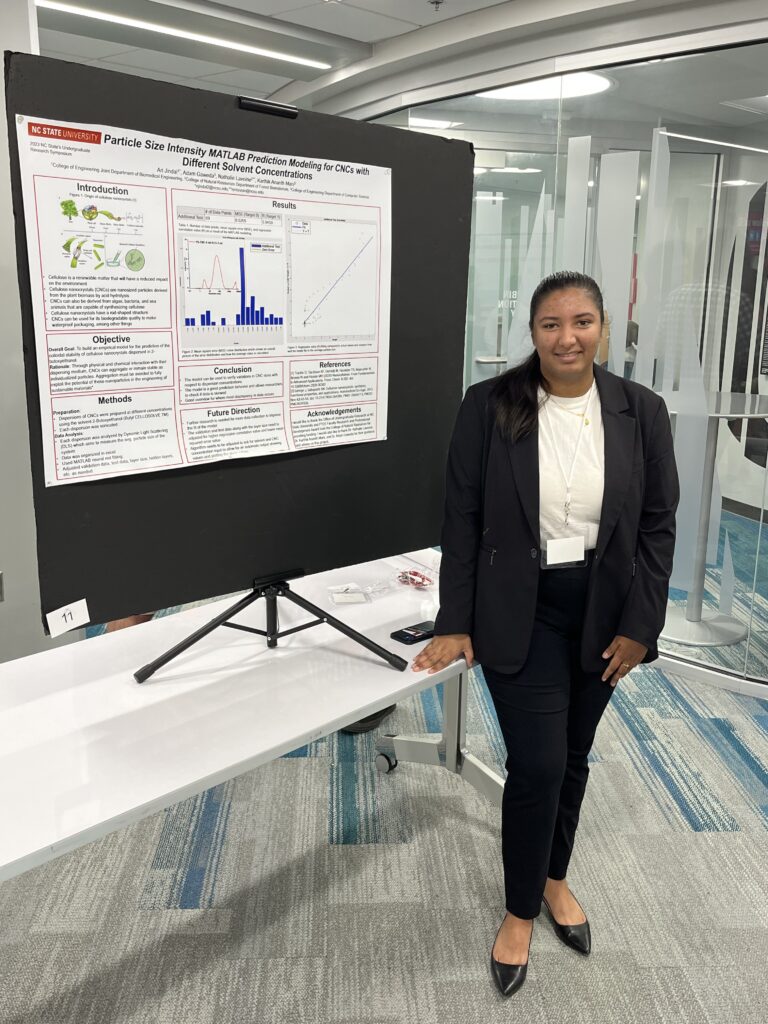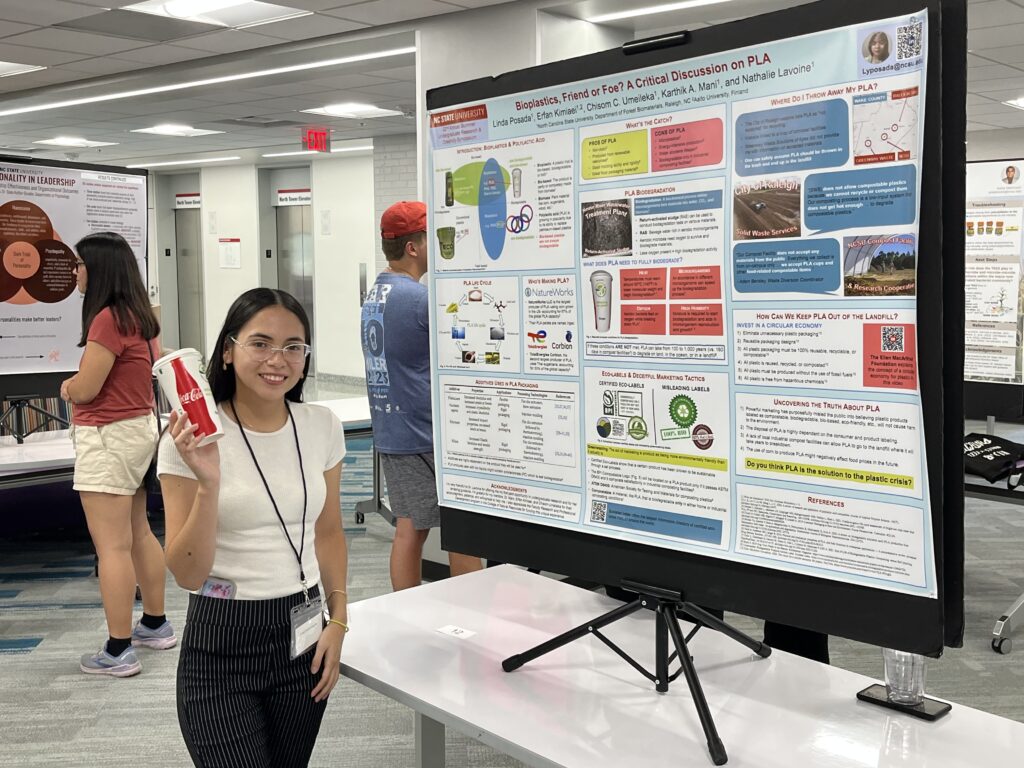Ari Jindal (she/her) joined our research group in February 2023 and presented on July 27, 2023 her work titled “Particle size intensity MATLAB prediction modeling for CNCs with different solvent concentrations“.
Her work was supervised by Dr. Karthik Mani and Dr. Nathalie Lavoine in the Department of Forest Biomaterials. Ari received support and mentorship from Dr. Adam Gaweda from the Department of Computer Sciences and Engineering.
Abstract:
Cellulose nanocrystals (CNCs) are nanosized particles derived from the plant biomass by acid hydrolysis. Research efforts towards producing nanoparticles from renewable matters have paved the way for the design and engineering of materials with reduced environmental impacts. However, to enable the full potential of CNCs, it is crucial to understand their behavior in different solvent systems, beyond water. In this study, we prepared varying concentrations of CNC dispersions using ethanol, methanol, and 2-butoxyethanol as solvents. Each dispersion was sonicated, then analyzed by dynamic light scattering (DLS) to quantify the colloidal state of the systems through measurements of the apparent article size and size distribution in the different solvents. Using this first series of experimental results, we developed a prediction model through the artificial neural network program in MATLAB to predict the behavior of CNCs in other solvent systems, not considered in the experimental phase. Our developed prediction model gave a good estimate of the average particle size of CNCs as a function of the dispersion concentration, with a regression correlation value of .94 and a mean squared error of 0.52. Our next steps will focus on the finetuning of the current model parameters for a better fit and its validation through lab experiments.

Linda Posada-Argueta (she/her) joined our group in May 2023 for a summer research experience and presented her work titled ‘Bioplastics, Friend or Foe? A critical discussion on PLA“.
Her work was supervised by Dr. Karthik Mani and Dr. Nathalie Lavoine and involves the collaboration with Chisom Umeileka and Erfan Kimiaei, two PhD students, experts in the field.
Abstract:
Plastics are part of our everyday life, yet their supply chain has been shown to negatively impact the environment through, for instance, greenhouse gas emissions and microplastic pollution. It is estimated that at least 8 million tons of plastics make their way into the ocean every year which equates to a garbage truck dumping its contents into the ocean every minute. With the growing problem of plastic pollution, many consumers are now opting for so-called, environmentally friendly products.
For instance, polylactic acid (PLA), a bioplastic made from corn, has increased in popularity thanks to a powerful green marketing. Although synthesized from renewable resources, PLA cannot easily biodegrade in the environment. Instead, PLA requires high temperatures and humidity to fully disintegrate in compost; a process that is, to date, only possible in composting facilities. As a result, the proper disposal of plastics becomes highly dependent on consumers but also on the city/state to share correct information and provide consumers with adapted disposal facilities.
Investing in a circular economy through recycling and reuse of plastics would significantly minimize the amount of plastic waste entering the environment. In the case of PLA, its strict biodegradation conditions have indeed skewed its environmental perception if one considers the entire PLA supply chain. While strategies to recycle it and reuse it have been investigated, we are not yet equipped to integrate its circular economy in our everyday life.
